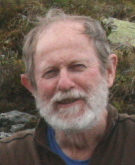Roger Clarke's Web-Site
© Xamax Consultancy Pty Ltd, 1995-2024

Infrastructure
& Privacy
Matilda
Roger Clarke's Web-Site© Xamax Consultancy Pty Ltd, 1995-2024 |

|
|||||
| HOME | eBusiness |
Information Infrastructure |
Dataveillance & Privacy |
Identity Matters | Other Topics | |
| What's New |
Waltzing Matilda | Advanced Site-Search | ||||
Notes of 13 September 1992, revs. 14 August 1999, 19 March 2001
© Xamax Consultancy Pty Ltd, 1992, 1999
This document is at http://www.rogerclarke.com/SOS/Know.html
These Notes present the conventional philosophical views that implicitly underlie the majority of thinking about information systems.
They are intended as a companion to my Notes on Data and Information.
The term 'knowledge' is often used to refer to a body of facts and principles accumulated by mankind in the course of time.
This idea of knowledge as a kind of goods that can be stored in a warehouse, is criticised by some people on the grounds that facts and principles cannot be meaningful outside the mind of a human.
In any case, knowledge is a complex of several related ideas. Dictionaries and information economists (e.g. The Concise Oxford, 19, p.598, 1976, The Macquarie Dictionary, 1981, p.978, and Machlup 1962 in 'The Production and Distribution of Knowledge in the United States' Princeton U.P., Princeton N.J., 1962) have identified the following:
A branch of philosophy, called 'epistemology', is dedicated to the study of knowledge, and its sources, varieties and limits. In any branch of philosophy, there are at least two competing views. In epistemology, one view, referred to as 'empiricism', holds that knowledge is derived from experience; whereas 'apriorism' considers that knowledge is innate. The extreme form of empiricism is referred to as 'positivism' or 'logical positivism', and holds that nothing is innate, and that only that which can be measured is worth worrying about. The extreme form of apriorism denies the very idea of knowledge existing outside the individual mind.
The conventional attitude adopted by non-philosophers is a kind of truce between the two extremes. The conventional view of the world is that things around me exist. If that is so, then any knowledge that I or anyone else has of them is not the thing itself, but rather an internal model of the thing. That is consistent with the empirical view of knowledge, because it says that we learn about things by sensing or measuring them.
There is still room for an element of innateness, however. A person is born with perceptual and cognitive apparatus (eyes and ears, optic and auditory nerves, sensory nervous system, brain, etc.) and it seems sensible to us that the processes within that apparatus are inherent to our bodies. The sensing and measuring we do of real things outside of ourselves is therefore mediated by what we are born with.
Another branch of philosophy that is relevant to this discussion is 'ontology', the study of what exists. The opposing views are 'materialism', which holds that anything that exists can be detected through the senses, and 'idealism', which says that everything exists in the mind, and that the 'real world' that we think we see is only a shared idea. A recent instance of this idea is William Gibson's explanation of 'cyberspace' as 'shared hallucination'. Once again, non-philosophers find a compromise, recognising both external realities (the secular world) and internal mind-stuff (the spiritual world).
It is worthwhile that we recapitulate the conventional assumptions about knowledge that information systems theory proceeds upon:
A more useful working definition than the one at the beginning of this document is therefore suggested as being the matrix of impressions within which an individual situates newly acquired information.
These ideas are applied in some of my other papers, e.g. on the topics of:
- research methods; and
- knowledge management and knowledge organisation.
A further concept of relevance is 'wisdom'. This is, however, on an entirely different plane from both information and knowledge, because it has to do with judgement exercised by applying decision criteria to knowledge combined with new information.
| Personalia |
Photographs Presentations Videos |
Access Statistics |
 |
The content and infrastructure for these community service pages are provided by Roger Clarke through his consultancy company, Xamax. From the site's beginnings in August 1994 until February 2009, the infrastructure was provided by the Australian National University. During that time, the site accumulated close to 30 million hits. It passed 65 million in early 2021. Sponsored by the Gallery, Bunhybee Grasslands, the extended Clarke Family, Knights of the Spatchcock and their drummer |
Xamax Consultancy Pty Ltd ACN: 002 360 456 78 Sidaway St, Chapman ACT 2611 AUSTRALIA Tel: +61 2 6288 6916 |
Created: 14 August 1999 - Last Amended: 19 March 2001 by Roger Clarke - Site Last Verified: 15 February 2009
This document is at www.rogerclarke.com/SOS/Know.html/
Mail to Webmaster - © Xamax Consultancy Pty Ltd, 1995-2022 - Privacy Policy